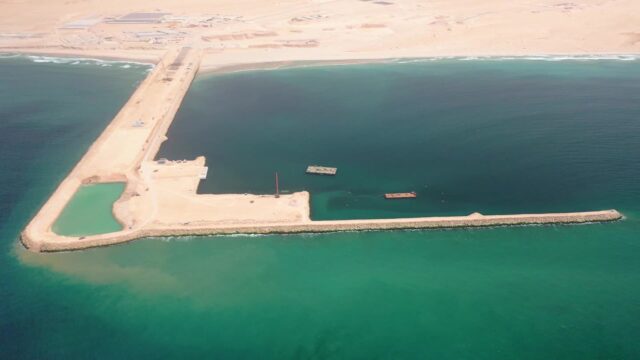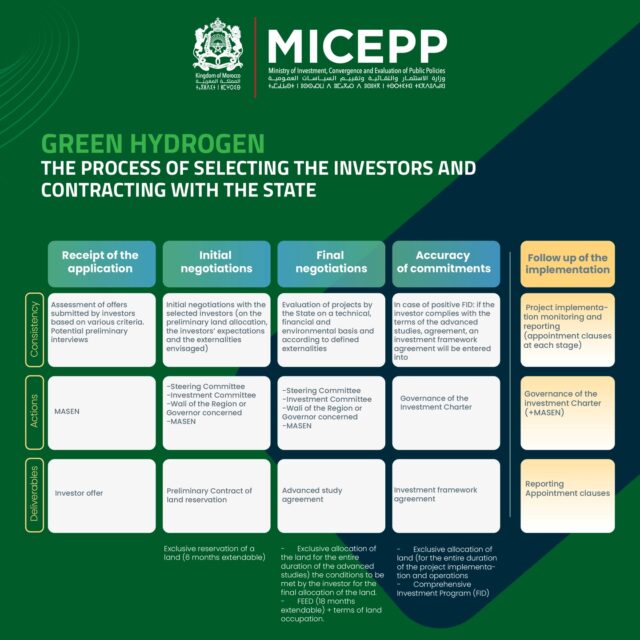Project Dhakla: one million tons per year from Morocco
By Julian Atchison on December 12, 2024
Operational by 2031

Click to learn more. The Port of Dhakla on Morocco’s Atlantic coast, where Dahamco will develop a multi-million ton per year renewable ammonia project.
As announced in local media, the UAE-Moroccan developer Dahamco is planning a $25 billion, multi-million ton per year renewable ammonia project on Morocco’s Atlantic coast. Based at the Port of Dhakla, Dahamco has obtained land rights and local authorisations and will be able to claim incentives from the Moroccan Green Hydrogen Offer, a government scheme launched in November 2022. The first phase will feature an investment of $4 billion and produce nearly one million tons of ammonia per year.
Today, its design is fully finalised, its co-investors mobilised and its outlets have been clearly defined. We have therefore been ready to move forward for quite some time. If everything goes as the company’s top management wishes, the first phase of the project will be operational in 2031 and will have a production capacity of around 1 million tonnes per year. The following phases of the project should come into service at intervals of 4 to 5 years from the operation of the first.
Dahamco President Tom Hanson quoted in “Green hydrogen and ammonia: Dahamco’s ambitions in Morocco”, Le Matin, 2 Dec 2024
The report also indicates that ammonia will be exported to the Benelux region in Europe, likely targeting the marine fuel market. Later phases could supply the Moroccan domestic market.
The announcement joins a series of recent announcements for ammonia production projects in Morocco, including the Chbika project (being developed by TotalEnergie, EREN Group, Copenhagen Infrastructure Partners and A.P. Møller Capital), and OCP Group’s renewable ammonia plans to replace carbon-intensive local production and imports.
The Moroccan Green Hydrogen Offer

Click to enlarge. The process of selecting investors for the Moroccan Green Hydrogen Offer. Source: Morocco Ministry of Investment.
The government assistance package applies to integrated projects “upstream from the generation of electricity from renewable energies and electrolysis, to the downstream transformation of green hydrogen into ammonia, methanol, synthetic fuel as well as the associated logistics”. Plots of 10,000 – 30,000 hectares will be awarded from a total parcel of one million hectares identified for development, and there will be an emphasis on development of shared infrastructure – ports, pipelines, desalination, salt cavern storage and grid connection points. Investment and tax incentives will accompany a simplified application process, overseen by Morocco’s Agency for Sustainable Energy (Masen) and the Ministry for Investment, Convergence and Evaluation of Public Affairs.